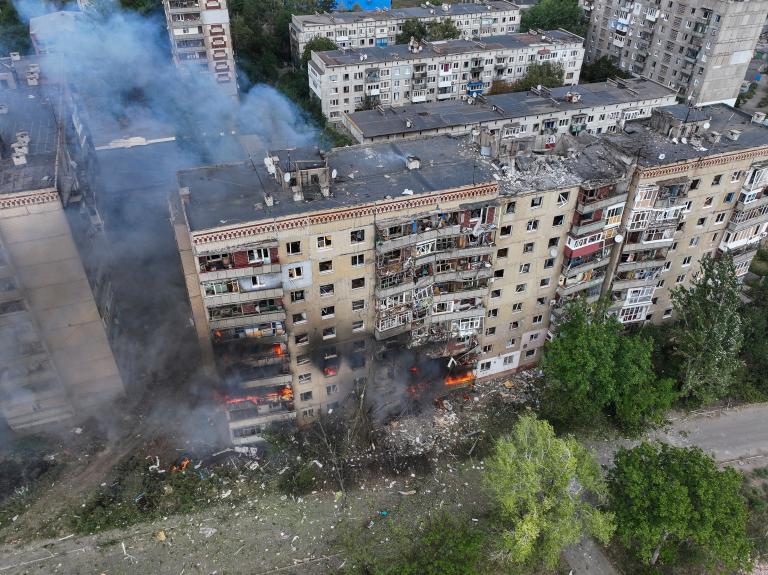Russian forces launched a series of overnight bombardments on Ukraine, killing at least four civilians and striking key areas in the contested Donetsk region, officials confirmed on Saturday. The attacks came just a day after the Kremlin signalled that peace negotiations remain stalled.
In the city of Kostiantynivka, Donetsk Prosecutor’s Office reported that rockets pounded a residential district for nearly an hour, destroying 14 homes. Three civilians were killed and seven others injured in the assault. The industrial city has faced sustained attacks in recent weeks, with repeated strikes crippling infrastructure and leaving many residents without electricity and water.
The Donetsk region remains a focal point of the conflict, described by some observers as decisive to the war’s outcome.
Further north, in Kharkiv, one man was killed and two others injured in another overnight strike. Local prosecutors said bombs and rockets destroyed homes and farmland in the area.
The escalation follows comments from Kremlin spokesperson Dmitry Peskov, who told reporters on Friday that peace talks were “on pause” and criticised European pledges of post-war security guarantees for Ukraine, calling them a barrier to negotiations.
“The fact that the Europeans are hindering this is indeed true. This is not a secret to anyone,” Peskov said. “For now, it is probably more accurate to say that there is a pause.”
Delegations from both sides have not met for formal talks since July, despite efforts by President Trump and the United States to revive dialogue. Peskov cautioned against expecting swift progress, remarking that “one cannot simply put on rose-tinted glasses” in the hope of rapid results.
Ukrainian President Volodymyr Zelenskyy reiterated his view that Russian President Vladimir Putin will only agree to negotiations when Moscow’s military resources are depleted. “The Russian war machine will only stop when it runs out of fuel,” Zelenskyy said at a conference on Friday. “And Putin will start to stop it himself when he feels, truly, that the resources for the war are running low.”
Meanwhile, NATO has strengthened its defences along Europe’s eastern flank in response to recent Russian drone incursions into Polish airspace, which the alliance has interpreted as a deliberate provocation.
The operation, codenamed Eastern Sentry, involves the deployment of fighter jets, a frigate, and ground-based defence systems from France, Germany, the United Kingdom, and Denmark. “The key to this is an entirely new defence design,” said US General Alexus Grynkewich, NATO’s supreme commander in Europe.
The latest developments underscore both the intensifying military confrontation and the deepening diplomatic impasse between Moscow and Kyiv.



